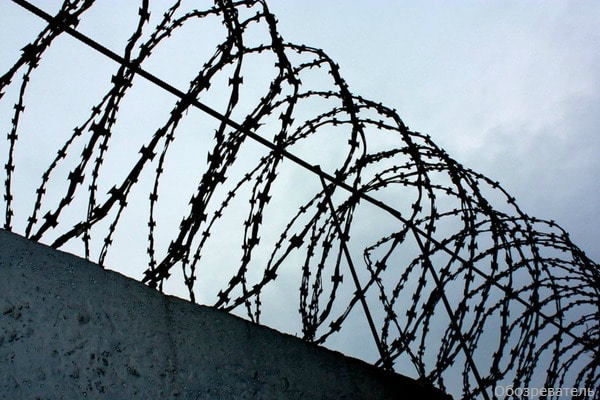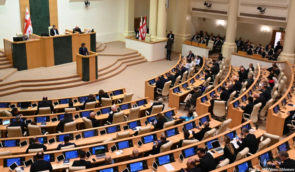Ukrainian Criminal Code still contains Soviet article allowing to prosecute ‘undesirable’ prisoners – human rights activists
Human rights activists demand to withdraw Article 391, which allows increasing the term of sentence for minor offences, from the Criminal Code of Ukraine.
The MPs need to adopt the relevant bill No. 2708, they note.
According to the article, “persistent disobedience to lawful requirements of authorities of a correctional institution, or any other resistance to lawful actions of such authorities in discharge of their functions, by a person who serves a sentence of restraint of liberty or imprisonment, where that person had been penalized for his/her misconduct by placement in a separate cell or a more restricted regime of service within one year, shall be punishable by imprisonment for a term up to three years.”

The experts note: it gives a wide scope for abuses of administration of penal colonies.
“This provision was introduced in the old Criminal Code of the Ukrainian SSR (Article 183-3) in 1983. It is surprising that its wording has not been changed since that time,” said Oleh Levytsky, the Ukrainian Helsinki Human Rights Union lawyer.
More than 500 convictions under this article appeared in the unified state register of the court rulings for 2010-2015. Only three acquittals were among them.
For example, one prisoner got one year for “sleeping in a wrong place”, another got two years for “unsanitary bedside table”, another got three years for refusing to get up in the morning, etc.
The administration usually imposes adequate penalties for such violations – reprimand, unscheduled cleaning and so on.
“But it is absurd to consider such misconduct sufficient for qualifying the action of a convict as a criminal offense for which a convict could get three years of imprisonment!” Head of the Human Rights Information Centre Tetyana Pechonchyk said.
“The monitors of NGOs during their visits to the places of deprivation of liberty without prior warning spoke with persons serving the sentence, including on condition of anonymity. In many cases, when prisoners complained about the violation of their rights by the staff, they were subsequently prosecuted under Article 391 as violators of the regime,” said Andriy Didenko, the Kharkiv Human Rights Group program coordinator.
In 2011, convict Volodymyr Bordun publicly said he had been tortured by staff of the Oleksandrivska penal colony No. 25. Despite the fact that the Kharkiv Human Rights Group had asked the penitentiary service in 2012 not to send Bordunov to colony No. 25, emphasizing there had been a real threat to his life and health, he was sent precisely to that colony. Bordun said he had filed the complaint to the UN agencies about tortures when 75 days until his release were left. Afterwards, he was given additional three years under Article 391.
Former prisoners emphasize: this article exists solely to prosecute those who claim their rights.








